After a week from hell: the Good Samaritan
Since I last posted to this blog, I left my role as associate rector with St. Andrew’s Episcopal Church in order to focus on a new ministry with Plainsong Farm. Updating the Churchwork blog hasn’t been high on my list. I hope it will rise nearer to the top again soon.
This summer my Sundays have included visiting parishes near me and some supply preaching. This morning I was honored and humbled to supply preach and celebrate with Grand Rapids’ historic African-American Episcopal church, St. Philip’s. As I say in the sermon, it was a week from hell (2025 update: this was the week that Philando Castile was killed by police). I see a number of preachers sharing words offered today. I offer these words in case they help somebody.
Anything that glorifies God in this is God’s work. Anything that detracts from God’s glory and God’s people is my error.
* * * * *
Every week in our church’s liturgy, we read the Word of God. We reflect on the Word of God and its meaning for us today. We share in the sacrament of God’s presence with us in the Holy Eucharist. We do this to glorify our Creator. And we do it because in this time of worship, our Lord strengthens us to be the body of Christ for our world.
Last week was a week from hell. Lord, have mercy. The violence and brutality that was on display in our country last week was breathtaking. It was traumatizing. It was disastrous. And maybe the worst part is that it was nothing new.
In Holy Scripture we read that human violence began almost as soon as human life began. Scripture’s story of human life starts in the garden of Eden. Scripture’s story ends with John’s vision of the promised new city in Revelation, a city where the Lamb of God is enthroned, a city through which runs the river of the water of life, a city where the tree with the leaves for the healing of the nations is found.
But we’re not there yet. We live in the middle between the garden of Eden and the vision of Revelation. Where we live starts in chapter 2 of Genesis where human beings trespass against God’s boundaries, then blame others for their own actions. Where we live continues in chapter 4 of Genesis with the first murder.
Cain kills Abel. When God and Cain next talk, God asks Cain, “Where is your brother Abel?” And Cain asks a question that God never directly answers. Cain asks, “Am I my brother’s keeper?” “What have you done?” God replies. “Your brother’s blood is crying out to me from the ground.” God answers Cain’s question with a question of his own.
Those questions echo all the way through Scripture through to today’s gospel lesson. In our gospel for today is another dialogue between someone who wants to justify himself and God, come to earth in human flesh to sort out this mess called humanity once and for all.
With all due respect to lawyers, lawyers deal in turning messy situations into clear-cut answers. And this lawyer wants a clear-cut answer. Jesus, tell me who my neighbor is. Then I’ll know whom to love – and, by extension, whom I can safely hate. Then I’ll know the path to eternal salvation – and, by extension, who is on a path to damnation.
Life is complicated and painful and difficult, this lawyer is well aware. So he asks: Just tell me exactly, Jesus. Who is my neighbor?
But Jesus never answers that question. Instead Jesus tells a story about a man beaten, robbed, and left for dead – a man against whom violence has been done. Jesus tells a story about two respected citizens who walk by, and a disrespected noncitizen who stops to help. This outsider treats the injured stranger like family. He doesn’t just bind up his wounds, he takes him to a place of hospitality for care. He doesn’t just take him for care, he promises to pay the bill himself, without limit.
The Samaritan does this for someone he has never met before. Someone he could pass by without ever seeing again. Someone whose story he does not know. Someone who definitely doesn’t live next door.
And then Jesus asks the lawyer a question of his own. “Who was the neighbor to that man?” And the lawyer must reply, “The one who showed him mercy.”
“Am I my brother’s keeper?” “What have you done?”
“Who is my neighbor?” “Well, who was the neighbor to that man?”
In response to human violence, we turn to God for answers. But God is in the question business. In response to human violence, God has questions for us.
When times are hard, the human tendency is to ask God, Am I my brother’s keeper? Can I pick and choose my neighbors? Can I be selective in my sympathy?
And God, who hates nothing and no one he has made, asks us in return, asks every one of us, “What have you done? How can you go and do likewise? How can you be a neighbor to somebody?”
At the beginning of this new week after the week from hell, our liturgical year requires us to read the Good Samaritan story. We read it in a city which is still shockingly segregated. We read it in the middle of a city which ranks 51st out of 52 metro areas for African-American economic opportunity: the bottom. We read it in a city with racial health disparities which you know about better than I, since St. Philip’s is a partner site for the African American Health Institute.
We read this story in the middle of a city which suffers from a legacy of institutionalized racism in the middle of a country which suffers from a legacy of institutionalized racism.
And, as you already know, white people have a ton and a half of work to do to eliminate that racist legacy that our ancestors created and reinforced with violence against the African American community. But we can’t do that work alone. If we try to do it alone we will get it wrong. Getting it wrong will hurt people more. In order to be better neighbors, we need the help of our neighbors.
I thank you for honoring me today with allowing me to speak to you, and I acknowledge before you that I have a ways to go before I could consider myself a good neighbor to you.
While we mourn the past, we cannot alter it. We can only change today and work by our actions for a better tomorrow. And we cannot change our neighbor. We can only change ourselves. Even then, if you are like me, not as much as you might want to. St. Paul in Romans said it better than I can, “For I do not do the good I want, but the evil I do not want is what I do… I find it to be a law that when I want to do what is good, evil lies close at hand.” That’s why our liturgy provides us confession and absolution every single week. So there is one place where we can tell the truth about how hard this life is, and how we have screwed it up, and gain the strength to begin again.
We are all part of this mess called humanity. We have all sinned and fallen short of the glory of God. Because of the sins of those who went before us and also because of our own, we lie dying at the side of the road. And Jesus comes for us, without our deserving, and pays the price for us, not counting the cost, to be made whole. He is the Good Samaritan for us all.
And so this week and every week, instructed by the Scripture and nourished by the body and blood of our Lord Jesus Christ, we pray to be his body on earth. That body includes every color and hue, for we are all children of God. May we have good answers for the questions God asks us. May we lead lives worthy of the Lord, fully pleasing to him, until we get to that city where the Lamb is enthroned and the tree with the leaves for the healing of the nations is found.
We can only get there together. The one who leads us forward is Jesus Christ. In his name we pray. Amen.
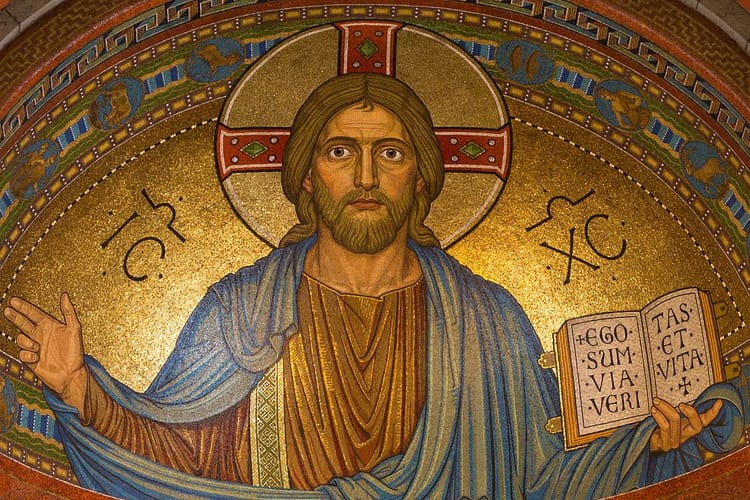
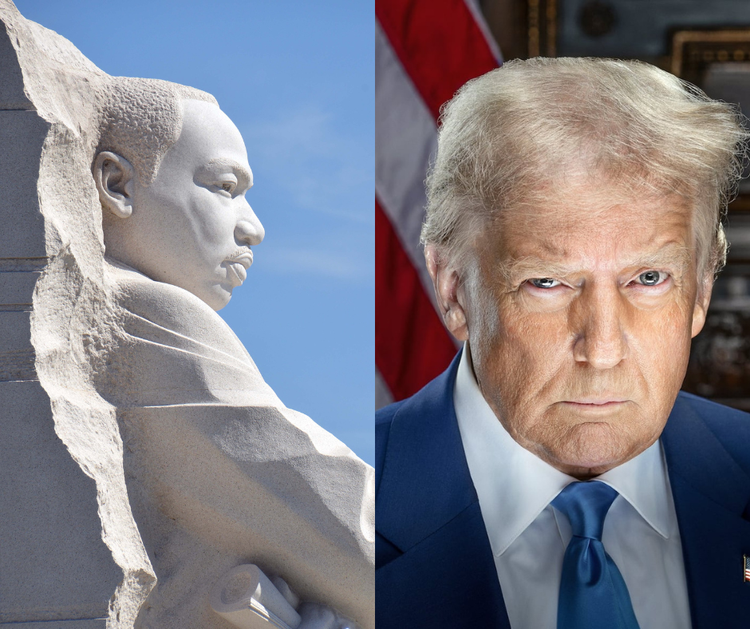
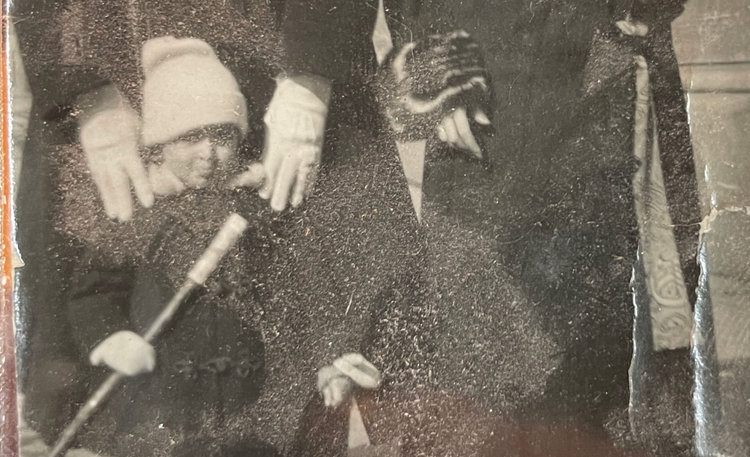
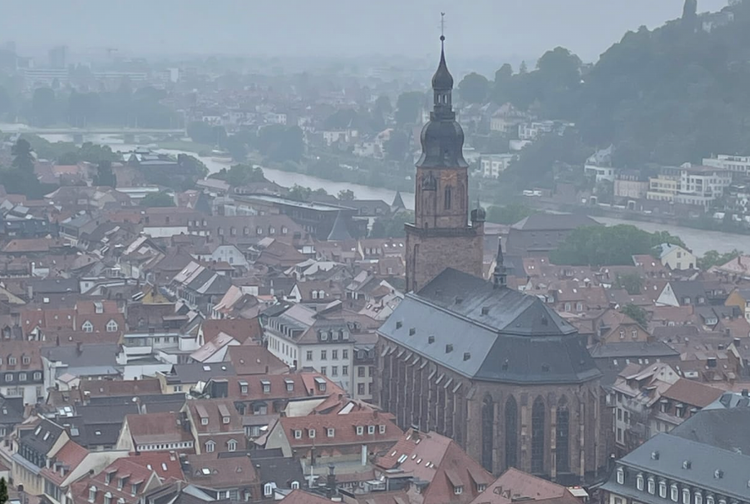
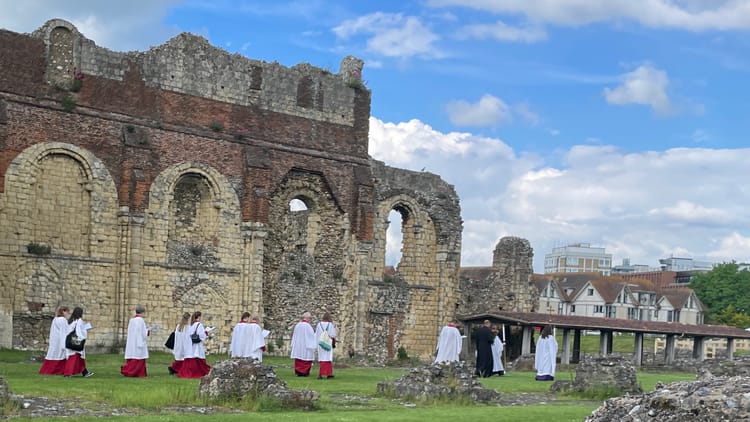
Member discussion